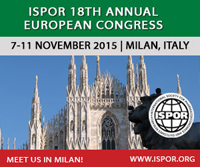Efficienza tecnologica e produttiva delle strutture trasfusionali in Italia
DOI:
https://doi.org/10.7175/fe.v3i1.741Abstract
In all the developed countries the methods of blood collection and production are relevant subjects for the pharmacoeconomics studies, because of their health and economic implications related to the health policies in this area. The “blood market” rappresents an area where the sanitary items, the economic items and also the ethic items must be broached at the same time; therefore it can be considered emblematic. By this situation arises Progetto CO.R.SA. (COsti Raccolta SAngue), a project for estimating productivity and cost for a representive sample of italian trasfusional structure (ST). The study is supported by Società Italiana di Medicina Trasfusionale e Immunoematologia (SIMTI). In Italy there are about 380 ST, but only 30 ST resulted suitable for the study. The analysis investigates six rates concerning: a) wastes; b) technological efficiency; c) personnel productivity. The present work describes only the informations on ST organization and production, delaying the results about costs to a specific further report.Downloads
Published
2002-03-15
How to Cite
Cornago, D., & Garattini, L. (2002). Efficienza tecnologica e produttiva delle strutture trasfusionali in Italia. Farmeconomia. Health Economics and Therapeutic Pathways, 3(1), 29–35. https://doi.org/10.7175/fe.v3i1.741
Issue
Section
Review (Economic Analysis)
License
Authors who publish with this journal agree to the following terms:
- Authors retain copyright and grant the journal right of first publication with the work simultaneously licensed under a Creative Commons Attribution-NonCommercial 4.0 License that allows others to share the work with an acknowledgement of the work's authorship and initial publication in this journal.
- Authors are able to enter into separate, additional contractual arrangements for the non-exclusive distribution of the journal's published version of the work (e.g., post it to an institutional repository or publish it in a book), with an acknowledgement of its initial publication in this journal. The Publication Agreement can be downloaded here, and should be signed by the Authors and sent to the Publisher when the article has been accepted for publication in this journal.
- Authors are permitted and encouraged to post their work online (e.g., in institutional repositories or on their website) prior to and during the submission process, as it can lead to productive exchanges, as well as earlier and greater citation of published work (see The Effect of Open Access).
- Authors are permitted to post their work online after publication (the article must link to publisher version, in html format)






